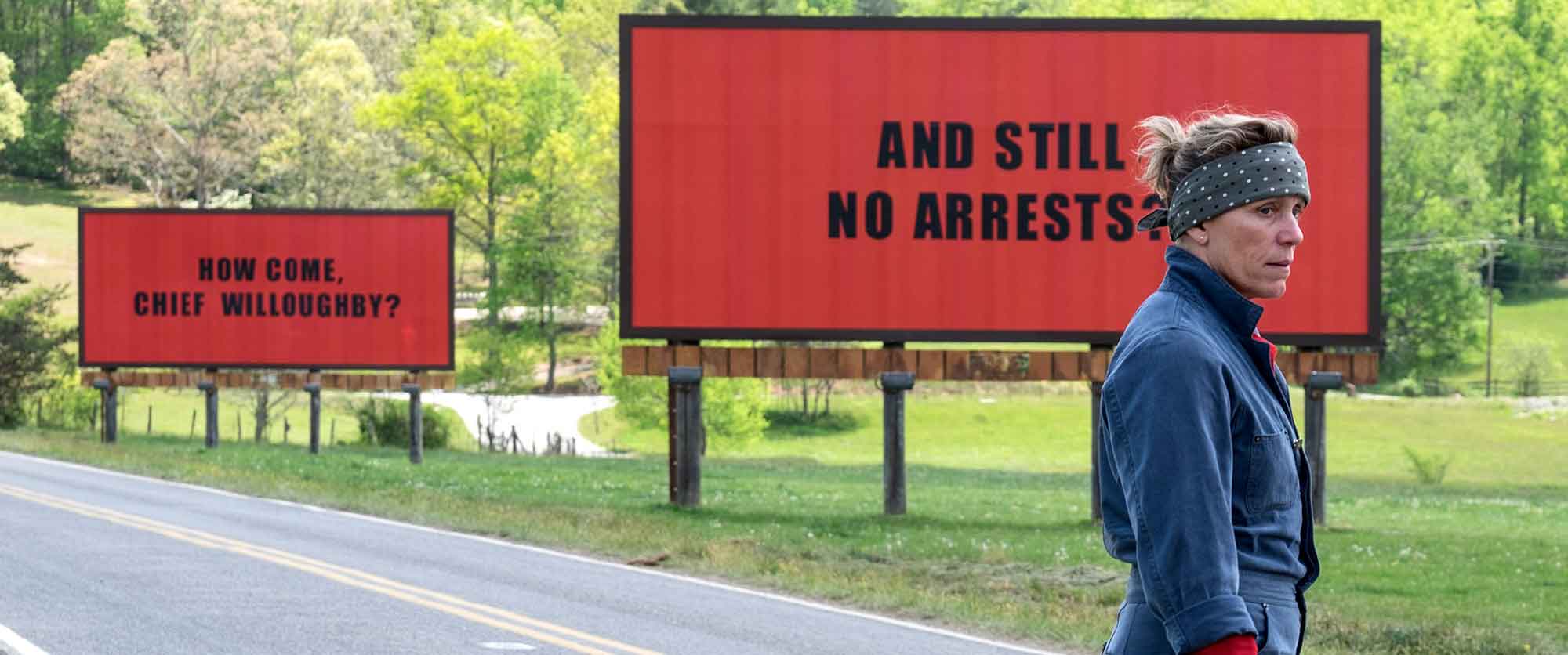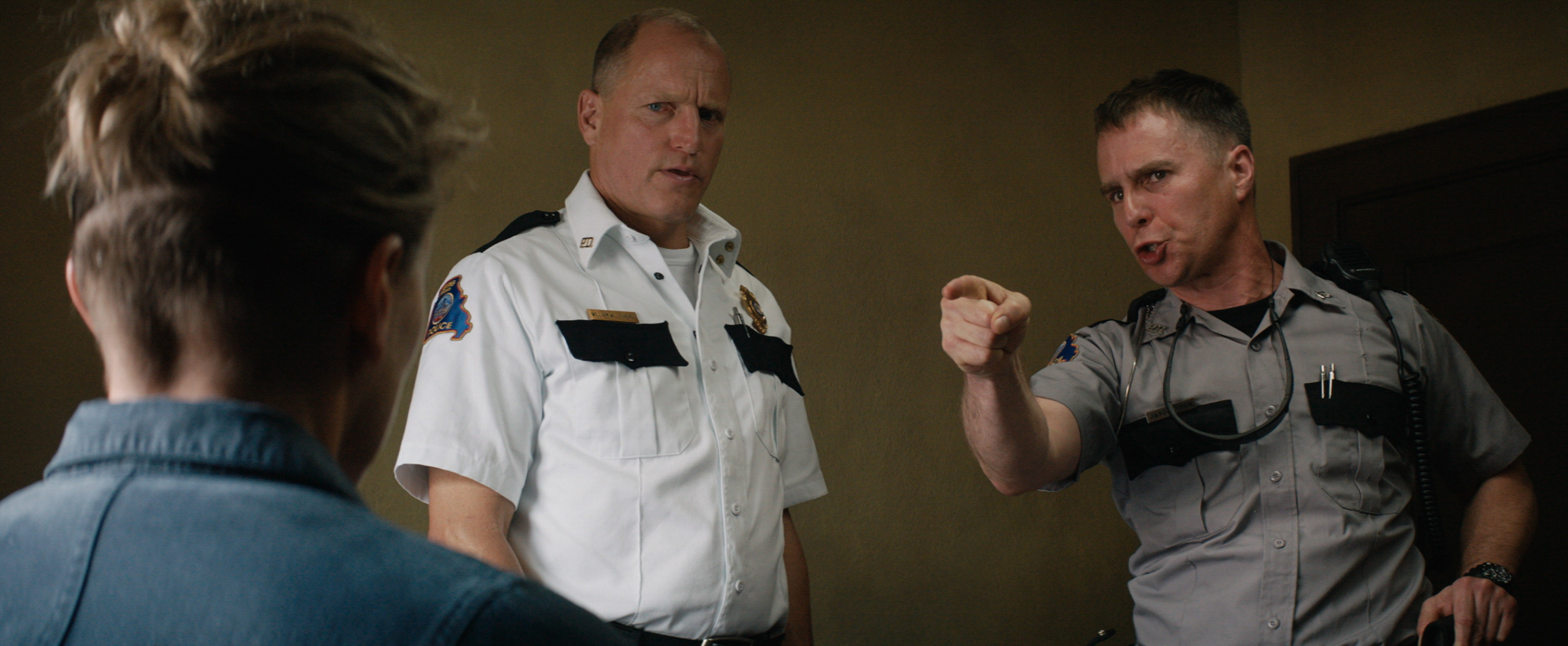Fair warning: considerable spoilers follow – read after watching.
Oh, it was so close. SO CLOSE.
Hypothetically, if Three Billboards Outside Ebbing, Missouri – hereafter referred to as Three Billboards because f*** typing out the full title every time – hypothetically, if it had ended five minutes earlier, I’d be giving it a straight ten out of ten, telling you that this is the perfect film, and petitioning you that it should win all of the trophies at the forthcoming Academy Awards. All. Of. The. Trophies.
But then Mildred had to invite Dixon along on a trip to Idaho. And Dixon had to pop his gun in the trunk, next to the sandwiches Mildred had packed (because priorities). And the pair had to discuss whether or not they were going to kill a guy who had done something bad, but not the something bad we’d just been talking about for two hours.
And, just like that, I was out.

Look, Three Billboards is still a fantastic movie. McDonagh’s writing is honest and relatable and evocative all in one. It’s kind of like watching real life on screen. McDonagh captures the real in a way that few writers can, digging up small moments of comedy – like Penelope clarifying her employment situation while Charlie has Mildred by the throat – in the most serious and frightening of dramatic moments.
And the performances are phenomenal across the board: Frances McDormand turns in her best performance since Fargo, owning the screen as she explores Mildred and brings her grief to bear on the audience, and Sam Rockwell is a revelation as Dixon, the small town cop with a questionable track record. Kudos to Woody Harrelson, who continues to surprise with his recent flourish of stellar performances.
I’ll be plenty happy for any of them to win acting awards at the Oscars.
I mean, I’ll probably be happy for the film to win, too. And McDonagh for writing or directing. I just felt really annoyed by the ending, to be honest.

Mildred spends the entire film fighting to kick the local police up the butt about the lack of movement in the case of her raped and murdered daughter, first through the three billboards of the title, but later by engaging the police – and the town, as we see in a pair of confrontations with the local priest and dentist – in a battle of wills. And that will comes about because of her grief. Whatever else she might be in Three Billboards, Mildred is a grieving mother. She wants justice for her daughter. And there is something kind of intimate about that.
The ending of the film, however, sees Mildred and Dixon seeking outwhatever justice they can find. It just felt at odds with the version of Mildred we’d been watching up to the point.
Don’t let the ending put you off seeing Three Billboards; this is a 10/10 film for around 95% of its run time. Just be prepared for a vague ending that doesn’t really resolve anything, and you’ll love it.
Three Billboards Outside Ebbing, Missouri is written and directed by Martin McDonagh, and stars Frances McDorman, Sam Rockwell, Woody Harrelson, Lucas Hedges, Abbie Cornish, Peter Dinklage, Clarke Peters, John Hawkes and Zeljko Ivanek. It is in theatres now.
